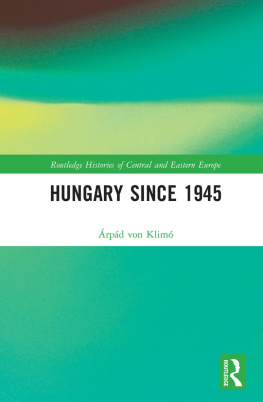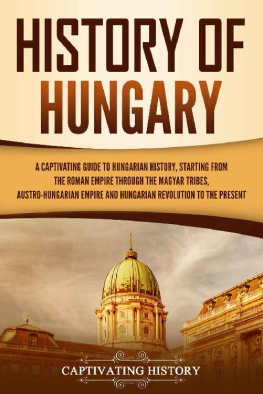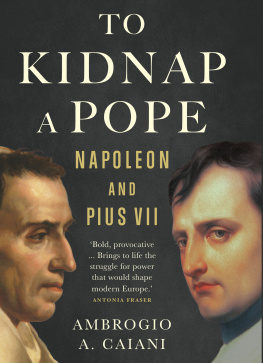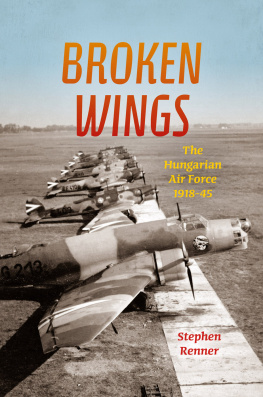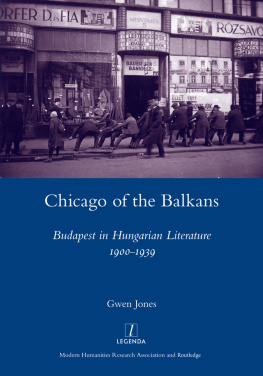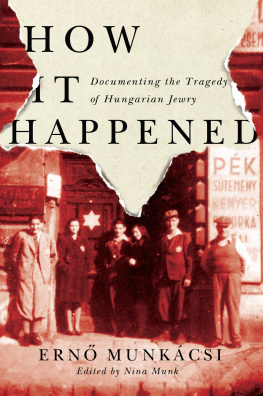Maurus Jokai - The Nameless Castle
Here you can read online Maurus Jokai - The Nameless Castle full text of the book (entire story) in english for free. Download pdf and epub, get meaning, cover and reviews about this ebook. City: New York, year: 1898, publisher: Doubleday, Page & Company, genre: Prose. Description of the work, (preface) as well as reviews are available. Best literature library LitArk.com created for fans of good reading and offers a wide selection of genres:
Romance novel
Science fiction
Adventure
Detective
Science
History
Home and family
Prose
Art
Politics
Computer
Non-fiction
Religion
Business
Children
Humor
Choose a favorite category and find really read worthwhile books. Enjoy immersion in the world of imagination, feel the emotions of the characters or learn something new for yourself, make an fascinating discovery.

- Book:The Nameless Castle
- Author:
- Publisher:Doubleday, Page & Company
- Genre:
- Year:1898
- City:New York
- Rating:3 / 5
- Favourites:Add to favourites
- Your mark:
- 60
- 1
- 2
- 3
- 4
- 5
The Nameless Castle: summary, description and annotation
We offer to read an annotation, description, summary or preface (depends on what the author of the book "The Nameless Castle" wrote himself). If you haven't found the necessary information about the book — write in the comments, we will try to find it.
The Nameless Castle — read online for free the complete book (whole text) full work
Below is the text of the book, divided by pages. System saving the place of the last page read, allows you to conveniently read the book "The Nameless Castle" online for free, without having to search again every time where you left off. Put a bookmark, and you can go to the page where you finished reading at any time.
Font size:
Interval:
Bookmark:
The Nameless Castle
by Maurus Jkai
INTRODUCTION TO THE ENGLISH TRANSLATION OF MY WORKS
This is not the first occasion upon which it has been my good fortune to win appreciation and approval for my works from the reading public of the United States. Up to the present, however, it has often been under difficulties; for many of my works which have been published in the English tongue were not translated from the original Hungarian text, while others, through want of a final perusal, were introduced to the public marred by numerous faults.
In the present edition we have striven to give the English reading public a correct translation, for which an authorized text has been utilized by the Doubleday McClure Co., who have sole right for publishing future English translations of my books.
Between the United States and Hungary we discover many common traits: the same state-creative energy in the predominant people, which finds expression in constitutional forms, relying upon the love of freedom, which unites so many different races in one uniform whole; the same independent institutions; the same ideas in religion, in ethics; the same respect for women, the same esteem of labor, the same mental culture; a striving after progress, yet side by side with this a high respect for traditions; the same poetry of agriculture, the same prose of industry; rapid progress of both, and in consequence thereof an impetuous growth of towns.
Yet, while we find so many common traits between America and Hungary in the great field of theory, those typical figures which here in Hungary represent such theories must make a novel and extraordinary entre in the New World, that they may deserve to win the interest of the foreign reader.
Hungary still represents a piece and parcel of the Old World; she is not so much Europe as a modern Asia. My novels centre round those peculiar figures of Hungarian common life; and in every work of mine a bit of history of true common life will be found described. I have had a particular delight, however, in occupying myself with foreign countries, especially with the East. There have been years when I was compelled to choose subjects for novel-writing in foreign parts.
In English and in Hungarian literature we find a common trait in that humor which is discovered also in the tragic; a characteristic of the nation itself.
It is with perfect confidence and in good hope that I present my present work (translated so faithfully) before the much-esteemed English reading public. May God bless that home of freedom, by whose example we have learnt how to unite the greatness of the state with the welfare of the people.
DR. MAURUS JOKAI.
BUDAPEST, May 11th, 1898.
DR. MAURUS JOKAI
A Sketch
To a man who has earned such titles as The Shakespeare of Hungary and The Glory of Hungarian Literature; who published in fifty years three hundred and fifty novels, dramas, and miscellaneous works, not to mention innumerable articles for the press that owes its freedom chiefly to him, it seems incredible that there was ever a time of indecision as to what career he was best fitted to follow. The idle life of the nobility into which Maurus Jkay was born in 1825 had no attractions for a strongly intellectual boy, fired with zeal and energy that carried him easily to the head of each class in school and college; nor did he feel any attraction for the prosaic practice of law, his fathers profession, to which Austrias despotism drove many a nobleman in those wretched days for Hungary. It was Ptofi, the poet, who was his dearest friend during the student-life at Ppa; idealism ever attracted him, and, by natural gravitation toward the finest minds, he chose the friendship of young men who quickly rose into eminence during the days of revolution and invasion that tried mens souls.
For a time Jkay, as he then wrote his name, was undecided whether to choose literature or art as an outlet for the idealism, imagination, and devotion that overflowed in two directions from this boy of seventeen. With some of the inherited artistic talent, which in his relative Munkacsy amounted to genius, he felt most inclined toward painting and sculpture, and finally consecrated himself to them. In his library at Budapest there now stands a small, well-executed bust of his wife in ivory; and on the walls hang several landscapes and still-life paintings, which he showed with a smile to an American visitor, who stood silent before them last winter, hoping for some inspiration of speech that would reconcile politeness with veracity and her own ideals of good art. If a deep love for art and an ardent desire to excel will more than compensate for the want of method, to quote Sir Joshua Reynolds, then Jkay would have been a great painter indeed. While he never was that, his chisel and brushes have remained a recreation and delight to him always.
Apparently he was diverted from art to literature by a trifle; but in the light of later developments it is simple enough to see which was really the greater force working within. The Academy of Arts and Sciences, founded by Szcheni, offered a prize for the best drama, and Jkay won it. He was then seventeen, for careers began early in olden times. When twenty-one his first novel, Work Days, met with great applause; other romances quickly followed, and, as they dealt with the social and political tendencies that fanned the revolution into flame two years later, their success was instantaneous. His true representations of Hungarian life and character, his passionate love of liberty, his lofty idealism for his crushed and lethargic country, aroused a great wave of patriotism like a call to arms, and consecrated him to work with his pen for the freedom of the common people. Henceforth paint-brushes were cast aside.
Ptofi and Jkay, teeming with great ideas, quickly attracted other writers and young men of the university about them, and, each helping the other, brought about a bloodless revolution that secured, among other inestimable boons, the freedom of a censored, degraded press. And yet the only act of violence these young revolutionists committed was in entering a printing establishment and setting up with their own hands the type for Ptofis poem, that afterward became the war-song of the national movement. At that very establishment was soon to be printed a proclamation granting twelve of their dearest wishes to the people. From this time Jkay changed the spelling of his name to Jkai, y being a badge of nobility hateful to disciples of the doctrine of liberty, fraternity, equality.
About this time Jkai married the Rachel of the Hungarian stage, Rosa Laborfalvy. The portrait of her that hangs in her husbands famous library shows a beautiful woman of intense sensitiveness, into whose face some of the sadness of her rles seems to have crept. It was to her powers of impersonation and disguise that Jkai owed his life many years later, when, imprisoned and suffering in a dungeon, he was enabled to escape in her clothes to join Kossuth in the desperate fight against the allied armies of Austria and Russia. Since her death he has lived in retirement.
The bloodless revolution of 1848, which suddenly transformed Hungary into a modern state, possessing civil and religious liberty for which the young idealists led by Kossuth had labored with such passionate zeal, was not effected without antagonizing the old aristocracy, all of whose cherished institutions were suddenly swept away; or the semi-barbaric people of the peasant class, who could little appreciate the beneficent reforms. Into the awful civil war that followed, when the horrors of an Austrian-Russian invasion were added to the already desperate situation, Jkai plunged with magnificent heroism. Side by side with Kossuth, he fought with sword and pen. Those who heard him deliver an address at the Peace Congress at Brussels two years ago felt through his impassioned eloquence that the man had himself drained the bitterest dregs of war.
Font size:
Interval:
Bookmark:
Similar books «The Nameless Castle»
Look at similar books to The Nameless Castle. We have selected literature similar in name and meaning in the hope of providing readers with more options to find new, interesting, not yet read works.
Discussion, reviews of the book The Nameless Castle and just readers' own opinions. Leave your comments, write what you think about the work, its meaning or the main characters. Specify what exactly you liked and what you didn't like, and why you think so.

